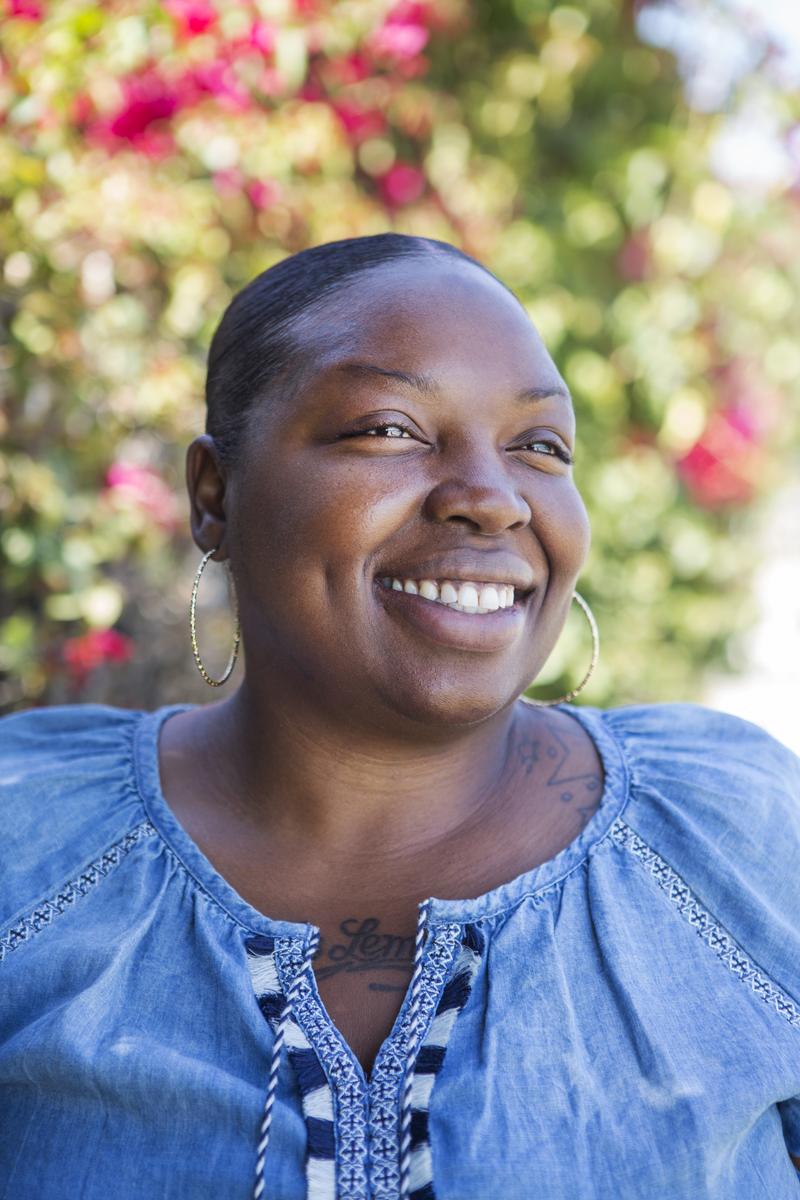Tanzina: Hi, everybody. I'm Tanzina Vega, and this is the Takeaway, and we're continuing our look at recreational marijuana legalization, and who's really benefiting from these policy changes. As we heard from our last two guests, the millions of people in the United States with prior marijuana-related convictions are rarely the ones who profit off of legalization.
Ingrid: My name is Ingrid Archie, and I am the civic engagement coordinator for A New Way of Life Reentry Project located in Los Angeles, California.
Tanzina: In 2004, Ingrid was convicted of possession with intent to sell marijuana.
Ingrid: I did 17 months on a three-year sentence. When I came home, I was sent to a program for behavior modification because of my charges, and after I finished the behavior modification program, I went into a program called A New Way of Life, which was transitional housing. Once I left A New Way of Life, I was able to obtain a job working for a company that did third party consulting work with other organizations.
Because the company I worked for had a contract with Verizon, they decided to change their hiring practices for people with backgrounds, and even though I was upfront and honest from the beginning, about what was on my background, I was fired because I had the marijuana conviction on my record, and it made it harder for me to find another job for the next seven years.
Tanzina: Four years ago, Ingrid worked to get Proposition 64 passed in California. The law legalized recreational marijuana in the state, but Ingrid was more concerned with the criminal justice overhauls that came with it.
Ingrid: Proposition 64 in 2016 came about, and we did the work at A New Way of Life around education, as far as the criminalization of marijuana in our communities during the war on drugs, and how it really sent a lot of our community members to prison, and it was important that we voted for Prop 64 to pass because our people wouldn't come home. I understand Prop 64 was a lot bigger than just people coming home, it was about the legalization of marijuana and so on and so forth, but for our community, because our community was hit hardest regarding the criminalization of marijuana, we needed our community members to understand that it was imperative that our people come home and be able to get a fresh start.
Tanzina: But that fresh start rarely includes making a living in the recreational marijuana industry.
Ingrid: The legalization of marijuana in California is kind of like the gold rush. It's lucrative. It's something that has been basically waiting around for so long, and for people who already had a stake in it, if you had money, you were able to invest. What we have now with the marijuana gold rush, the people who have the money never really felt the ravages that our communities still feel and that we still see when we go to poor communities that were hit hard by marijuana criminalization. They never felt that, but our community members did and although they got free, but they're still locked out of a system that people are literally making money off of, millions of dollars off of, and our people are still locked out of it. No, I don't think that there's enough being done to make sure that the people who are hardest hit by this are able to make an income.
Tanzina: Ingrid Archie is legal clinic coordinator with A New Way of Life, a Los Angeles nonprofit supporting formerly incarcerated women.
Copyright © 2020 New York Public Radio. All rights reserved. Visit our website terms of use at www.wnyc.org for further information.
New York Public Radio transcripts are created on a rush deadline, often by contractors. This text may not be in its final form and may be updated or revised in the future. Accuracy and availability may vary. The authoritative record of New York Public Radio’s programming is the audio record.



